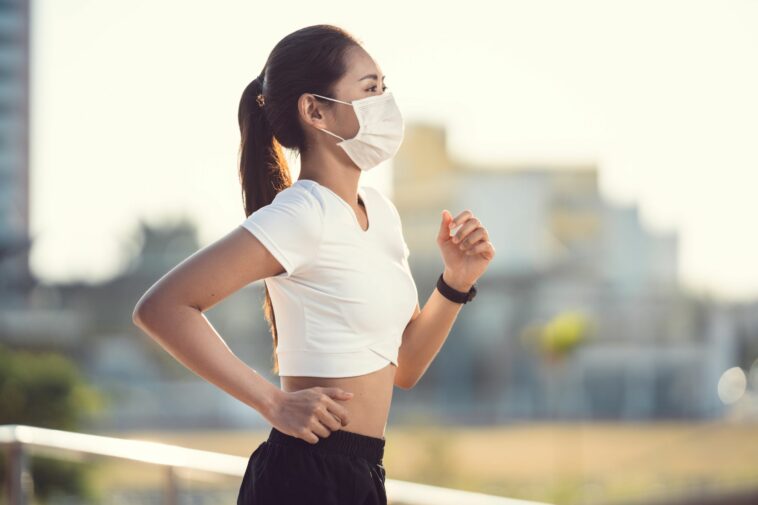While face masks can’t protect you from the novel coronavirus SARS-CoV-2, they can prevent you from spreading disease by essentially trapping water droplets from your nose and mouth that could contain the virus if you're not yet aware you are infected.
Unfortunately, they’re not the most comfortable things to wear, but a new issue has also popped up: They could make exercise an unexpectedly dangerous activity.
A report from 7News in Australia recently described the instances of two teenage boys in China who died after exercising while wearing a face mask. While not enough is yet known to ascertain if this is a direct result of the masks they were wearing, the occurrence has thrown into question is it safe it is to wear a mask during strenuous exercise?
When we exercise, we breathe heavier and faster, which unfortunately makes us more likely to release water droplets from our nose and mouth that could carry contagious pathogens such as SARS-CoV-2.
This is a big problem for major sporting events that have been forced to suspend matches during the pandemic, because how can they safely return players to an environment where they essentially run around panting on one another?
The UK's football (soccer) Premier League is considering introducing face masks to the beautiful game, but masks can make it harder to breathe during such high-intensity sports.
It’s unlikely a mask will cause significant breathing difficulty during moderate exercise, but in sports such as rugby and soccer players take in air at rates of about 40-100 liters per minute. As we exhale, we breathe out carbon dioxide but if this gets trapped within the masks it’s possible the players could be recycling carbon dioxide, starving their bodies of precious oxygen.
Lindsay Bottoms, a Reader in Exercise and Health Physiology from the University of Hertfordshire, UK, decided to investigate whether wearing a mask greatly inhibited our capacity to breathe during a treadmill test.
Her department had been approached by a fencing equipment company regarding the safety of masks during matches so the experiment was completed in full fencing kit, with and without a cloth mask under the fencing mask. A gas analyzer was adapted to measure the concentration of gases being breathed in and out as she worked out and she reported her findings in an article on The Conversation.
At sea level oxygen in the atmosphere is around 21%, and when running in the fencing suit without the mask Bottoms experienced an oxygen concentration of around 19.5%, the equivalent of exercising about 600 meters (about 1,968 feet) above sea level.
After she added the face mask, according to the gas analyzer, her oxygen dropped to just 17% which is the equivalent of exercising at 1,500 meters (4,921 feet).
A decrease in oxygen beyond this point, be it due to increased severity of exercise or further air being blocked by the mask, would begin to bring on symptoms of altitude sickness, which include headache, dizziness, feeling or being sick, and shortness of breath.
The example of fencing is a unique one as the players are already wearing headgear, but from just the fencing mask to both masks the reduction in oxygen increased three-fold, showing the influence of the face mask is not insignificant.
Bottoms suggests this is an area in need of urgent research to ascertain the safety of wearing face masks while exercising, especially for those with underlying health conditions.
This article was first published in The Conversation / IFL Science. Discover more holistic health articles on Mother of Health. Follow us on Pinterest, Facebook, Instagram. If you are looking for supplements to increase your healthy lifestyle and sexlife please visit Natural Health Source.

